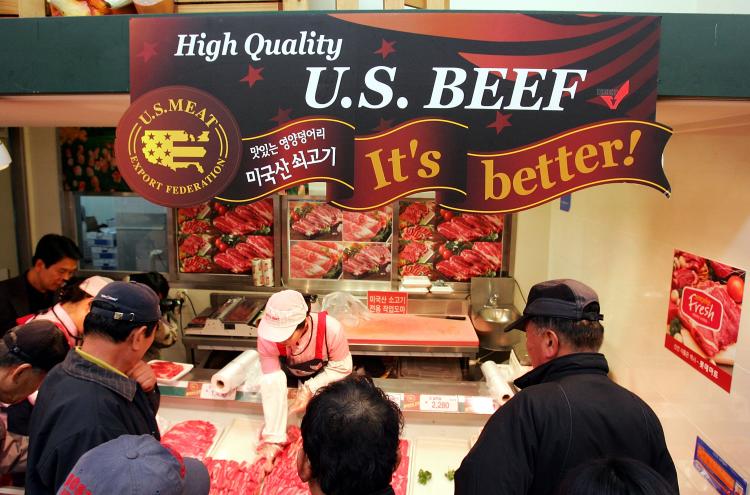The Trans Pacific Partnership is a once-in-a-generation opportunity to give the U.S. economy a big boost.
By wiping out 18,000 taxes slapped on products as they cross international borders, it will help both American farmers and consumers. We’ll enjoy better opportunities to sell our exports abroad and the prices of products in our own stores will go down.
It’s like a tax cut for everyone.
As a rancher and farmer in Oklahoma, I know the world of agriculture best—and TPP will allow me to sell more of what I raise and grow to customers in 11 other countries. Every member of TPP will lower trade barriers, improving the flow of goods and services in nations whose economies account for two-fifths of the world’s commercial activity.
The Peterson Institute for International Economics says that TPP will add more than $220 billion to global GDP within the next decade. The Wall Street Journal has pegged the figure at $285 billion. Either way, it’s a pretty big deal. As the late Senator Everett Dirksen of Illinois once said: “A billion here, a billion there, pretty soon, you’re talking real money.”
Much of this cash will go into the pockets of exporters and workers. In the Sooner State, we ship roughly $2 billion in agricultural products to other countries and 14,000 people have jobs that depend on these sales. Under TPP, we’ll enjoy more sales and more jobs.
Consider the case of Japan. Right now, its tariff on beef can soar to 50 percent—a tax rate so high, it effectively blocks American meat from its markets. Under TPP, this will fall to just 9 percent. Moreover, Japan will wipe out its tariffs on three-quarters of meat products, including processed beef. Tariffs on poultry and about 80 percent of pork products will vanish entirely.
Japan is already an excellent market for us. Now it will get better.
We’ll also enjoy more access to Malaysia and Vietnam, a pair of countries that have agreed to knock down a series of barriers to American goods. Under TPP, their growing middle class will start to buy more of what we sell.
TPP isn’t perfect. I thought our TPP negotiators might have achieved a little more with Japan, pushing it to lower its trade barriers even further. For the sake of American dairy farmers, I would like to have seen better access to Canadian markets. In turn, we might have given Australian sugar producers more access to our market, in a move that would have resulted in lower consumer prices here.
Yet I’m not going to complain. That would let the perfect become the enemy of the good—and indeed, TPP is very good for everyone.
We must recognize the choice before us. It’s not between the very good TPP we have right now and a slightly improved one in a year or two. Instead, it’s a choice between a very good TPP and nothing at all.
The trade talks that have resulted in TPP began in earnest nearly six years ago. If we count preliminary negotiations, they go back even further in time. They’ve demanded long sessions of give and take from all sides. Agriculture is a notoriously difficult area for trade because it involves so much political sensitivity. Yet trade diplomats have made it a major piece of the agreement.
When I visited Japan on a fact-finding mission several years ago, I met people in agricultural organizations and came away with the impression that we’d never strike a meaningful deal with them. To my surprise and amazement, we now have an agreement that goes far beyond anything I would have dared to imagine back then.
So I see TPP as a minor miracle—an act of political courage on the part of several governments, as well as an excellent opportunity for the United States to sell more of what it makes and grows.
This is a good deal for all of us. If we say yes to TPP, we’ll start to feel the economic benefits soon. If we say no, we may not see them ever again.
Hope Pjesky and her family are farmers / ranchers in northern Oklahoma where they raise cattle and wheat. Hope volunteers as a board member for Truth About Trade & Technology / Global Farmer Network (www.truthabouttrade.org).
Follow us: @TruthAboutTrade and @World_Farmers on Twitter | Truth About Trade & Technology on Facebook.

